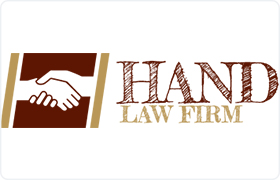Five Points RICO Act Lawyer, Alabama
Sponsored Law Firm
-
 x
x

Click For More Info:
-
Hand & Associates, LLC
114 N 8th St Opelika, AL 36801» view mapAccident & Injury, Family, Business, Wills, Criminal Accomplished · Determined · Experienced
Our approachable attorneys immediately put you at ease about your legal problem. We are focused on making a brighter future for you.
334-741-4077
Not enough matches for Five Points RICO Act lawyer.
Below are all Five Points Criminal lawyers.
Benny Hand
✓ VERIFIED *Status is reviewed annually. For latest information visit hereBen Hand is the founding partner of Hand Law Firm, LLC. as well as a partner in Hand & Hand Mediation, LLC. Ben was admitted to the Bar in Alabama in... (more)
Will O. Walton
✓ VERIFIED *Status is reviewed annually. For latest information visit hereAfter many years of practicing law with a large prestigious firm, Trip Walton decided to build his own firm around a core of attorneys with superior t... (more)
Melvin Lamar Bailey
FREE CONSULTATION
CONTACTWilliam Lamar Smith
FREE CONSULTATION
CONTACTRonald L Clark Jr.
Joseph L. Dean
Barbara H. Agricola
FREE CONSULTATION
CONTACTGabriel Joseph Smith
FREE CONSULTATION
CONTACTSamantha Burt Copelan
Lee Hamilton
FREE CONSULTATION
CONTACT Benny Hand Opelika, AL
Benny Hand Opelika, AL Practice AreasExpertise
Practice AreasExpertise

